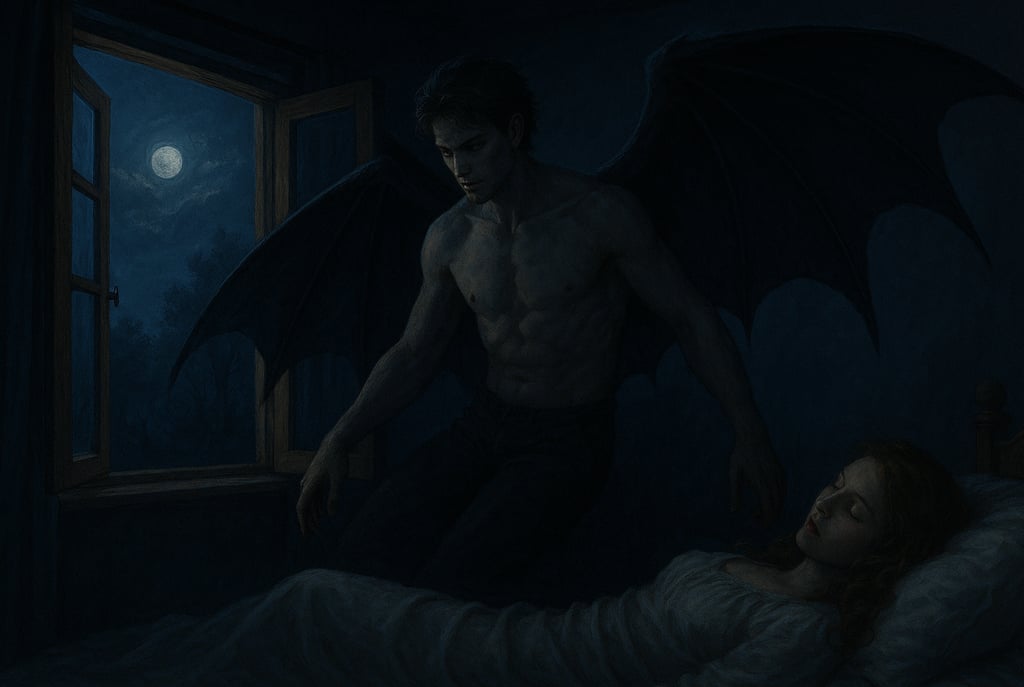Zburătorul: The Winged Tempter of Romanian Folklore
A seductive demon from Romanian folklore, the Zburătorul visits women in dreams, bringing desire, torment, and mystery. Who — or what — is he?
PARANORMAL & FOLKLORE


In the shadowy depths of Romanian folklore, the Zburătorul (pronounced Zboo-rah-TOR-ool) emerges as one of the most haunting and sensual figures — a nocturnal spirit who visits women in their sleep, whispering desires and stirring emotions that blur the line between dream and reality.
Far from the grotesque monsters of other legends, the Zburătorul is elegant, dark, and dangerously beautiful — a winged, horned being who preys not on flesh, but on longing. He doesn’t break into homes with violence; he seeps into the mind and heart, entering through dreams and stirring the soul with an otherworldly magnetism.
A Demon, a Lover, or a Metaphor?
First recorded in medieval Romanian literature and brought to fame by poets like Ion Heliade Rădulescu and Mihai Eminescu, the Zburătorul is as much a psychological presence as a mythical one.
He typically appears:
At night, often hovering at the foot of a woman’s bed
In dreams, as a dark, winged man, whispering poetic words
To women, especially young brides or virgins, inciting romantic or erotic longing
In older rural traditions, women afflicted by these dreams were said to be visited or haunted, often waking up fatigued, lovesick, or confused. Was he a symbol of suppressed desire, or a real demon sent to test the soul?
Iconography & Symbolism
In modern depictions like the one above, the Zburătorul appears with:
Bat-like wings (linking him to night and transformation)
Sharp claws and horns (hinting at his demonic roots)
A muscular yet shadowy form, representing both danger and seduction
At the bottom of the illustration, magical and astrological symbols evoke his role as an otherworldly being — part incubus, part fallen angel, part poetic archetype.
The Women He Visits
Zburătorul is often linked with:
Unfulfilled longing
Emotional isolation
Repressed sexuality in a conservative, patriarchal society
His presence reflects a deeper cultural truth — that desire, grief, and mystery all live close together in the dark.
Related Romanian Beings
The Zburătorul shares similarities with:
Ielele – enchanting forest spirits who seduce and confuse
Pricolici – shape-shifting spirits who haunt the night
Moroi – restless dead who return in spectral form
But unlike them, he doesn’t bring death — he brings madness, craving, and poetry.
Whether seen as an allegory for passion or a literal demon of dreams, the Zburătorul remains one of Romania’s most fascinating and unsettling beings — a reminder that folklore doesn't just warn us about monsters in the forest, but the ones that live inside us.
